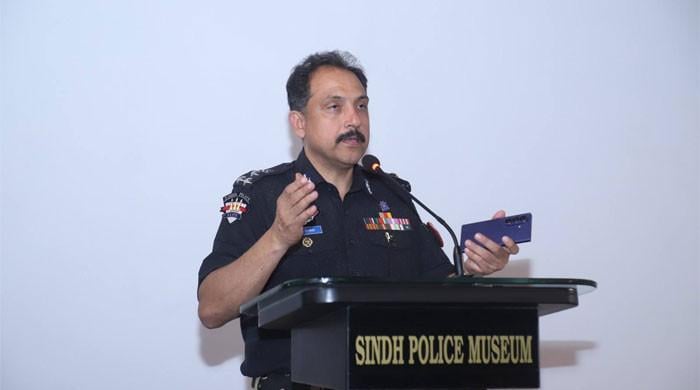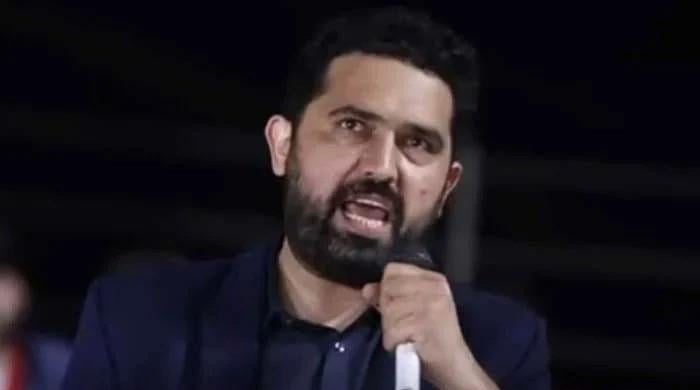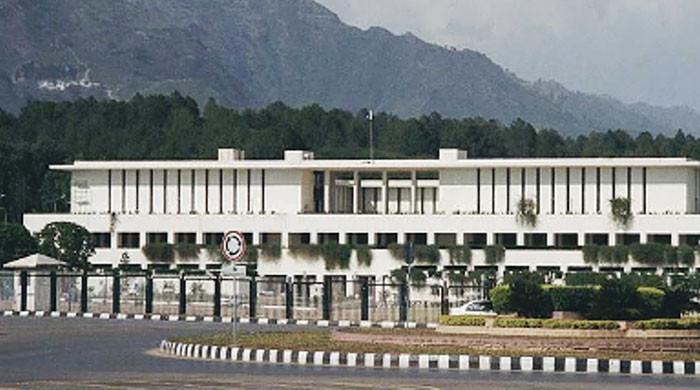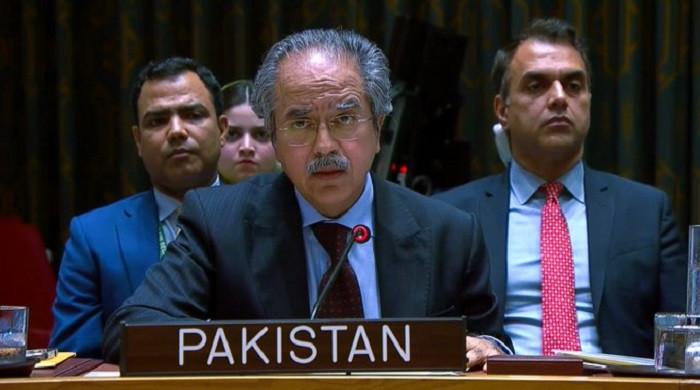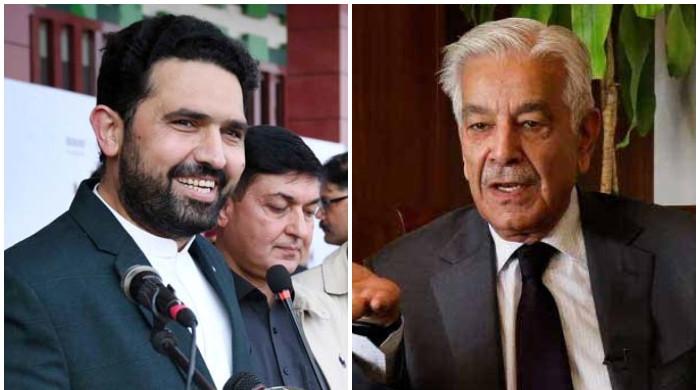Omar Sheikh claims he did not kill or kidnap Daniel Pearl in newly surfaced document
'It was in fact Atta ur Rehman, alias Naim Bokhari, who kidnapped the WSJ reporter in Karachi,' Omar claimed in letter to SHC
October 01, 2020
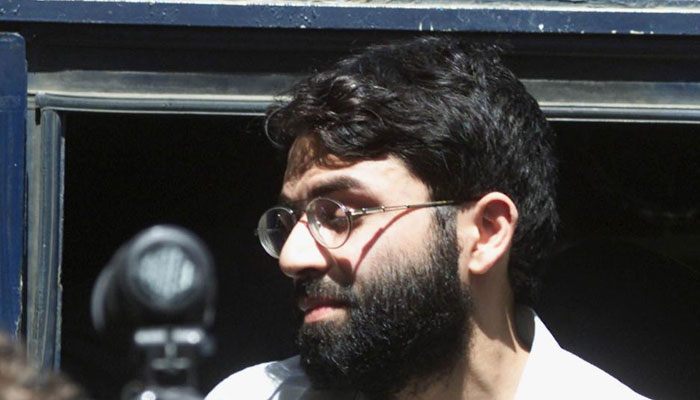
In a recently surfaced court document, Omar Sheikh denies the charge of orchestrating the kidnapping and murder of Wall Street Journal reporter Daniel Pearl in 2002 from Karachi.
Sheikh, a prime accused and the alleged mastermind of the plot to kidnap and murder Pearl, wrote a letter to the Sindh High Court last year from his prison in Hyderabad. In the letter, seen recently by Geo.tv, the British-born militant claimed that he had a small role in the abduction of the journalist and it was in fact Atta ur Rehman, alias Naim Bokhari, who kidnapped the reporter.
Sheikh also requested the Court to summon him as well as Atta ur Rehman to determine the facts. Rehman is currently facing a death sentence awarded to him by a military court in a separate case.
Read more: The life story of Omar Saeed Sheikh reads like something out of a spy novel
The counsel for the Sindh government, Farooq H. Naik, has also confirmed the authenticity of this letter. “Yes, he had written such a letter,” Naik told Geo.tv.
In the year-old-statement, Sheikh noted that even when Rehman was arrested for Pearl’s killing, he was never charged despite Rs. 1 million head money. “Because it could have exposed the lies against me,” the militant wrote.
He went on to write that Rehman was kept in custody by the paramilitary force, Rangers, for years, and later charged for possession of drugs. “After his release he organised some of the most devastating attacks in Karachi including a bombing at the Ranger's Nazimabad headquarters, where he was kept,” Sheikh continued.
Read more: SHC commutes death penalty of prime accused, acquits three accomplices
Rehman’s involvement in these bombings have been confirmed in the court documents presented during the trial. While the former DIG of the Crime Investigation Agency (CIA), Manzoor Mughal, told Geo.tv that even though Rehman was picked up by agencies, he was never charged in Pearl’s case “for reasons best known to them,” he added.
The militant also argues that if Rehman is executed a key piece of evidence in Pearl's case will be lost. “I want to clarify my actual role in Pearl's kidnapping,” Sheikh went on, claiming that neither did he kill Pearl nor kidnap him, which, he adds, was also acknowledged by former President Pervez Musharraf in his book.
While the Court did not entertain the letter, in April it acquitted all four defendants in the 2002 murder of the American journalist. However, Sheikh was found guilty of being involved in abduction for ransom, and his death sentence was commuted to seven years in jail, which he had completed.
But before Sheikh could walk free, the Sindh government detained him first under the Maintenance of Public Order and later under Section 11 of the Anti-Terrorism Act.
Although the detention expired on September 30, the Supreme Court recently restrained the Sindh government from releasing the accused.
While the case is ongoing, the Supreme Court can order a retrial of the high-profile case or uphold the April verdict of the Sindh High Court.





